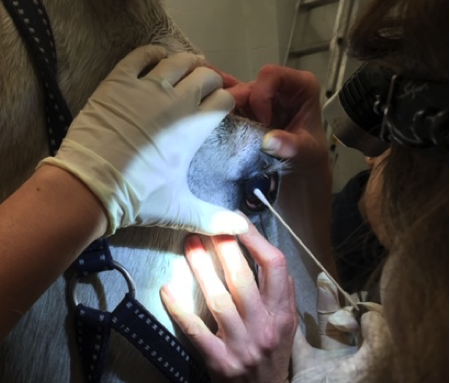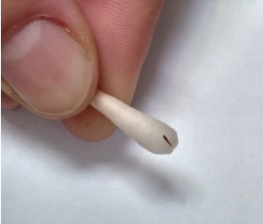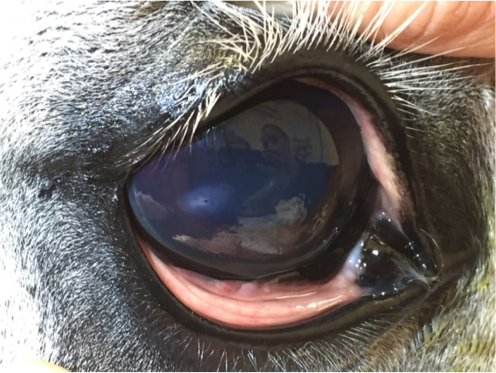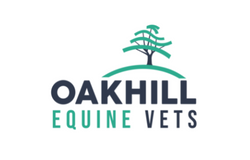Equine Ophthalmology
Horses can suffer from a huge range of ocular conditions which may involve the eyelids and surrounding tissue as well as the eye (globe) itself.
Signs to look out for
It is imperative that your horse is assessed by our equine team if you notice any changes with your horse’s eyes such as:
• swollen or torn eyelids
• inflamed and reddened conjunctiva
• a closed eye
• discharge (from watery to pus)
• cloudiness
• persistent rubbing of the eye
• sensitivity to bright light
These signs may indicate anything from mild irritation and infection to more serious and painful conditions including uveitis, foreign body penetration and deep corneal ulceration. Severe trauma or inflammation can lead to significant changes in the eye where the eye may be compromised to such an extent that vision could be affected long term or lead to rupture of the eye itself.
Ocular examination
Depending on the case, we may need to sedate your horse in order to perform a thorough ocular examination. We will often use a coloured dye called ‘Fluoroscein’ to help identify any ulceration or damage to the cornea (top surface of the eye). An opthalmoscope will be used to visualise the various structures within the eye, this includes the cornea, lens, iris, retina and inner chambers. These can be difficult to assess if there is cloudiness or inflammation in the front of the eye. In these cases we can perform an ultrasound examination to assess these hidden structures in our clinic. We can also check for changes in pressure within the eye, typically in cases of glaucoma, using a Tonometer.Treatment
Treatment will likely consist of anti-inflammatories, pain relief and antibiotics depending on the cause. These may be oral sachets fed in feed or applied directly to the affected eye in eye drops. It may sometimes be necessary to take a swab or biopsy to determine what organisms are involved if the horse does not respond to initial treatment. Horses may struggle with regular application of eye drops which can be frustrating for both horse and owner! In these cases we can offer hospitalisation in our clinic with our experienced veterinary team and we may also recommend placing a lavage system. This can be a very reliable and efficient method for delivering medication and can be much safer when dealing with fractious horses .
Eye thorn removal 
Eye thorn 
Thorn in eye
